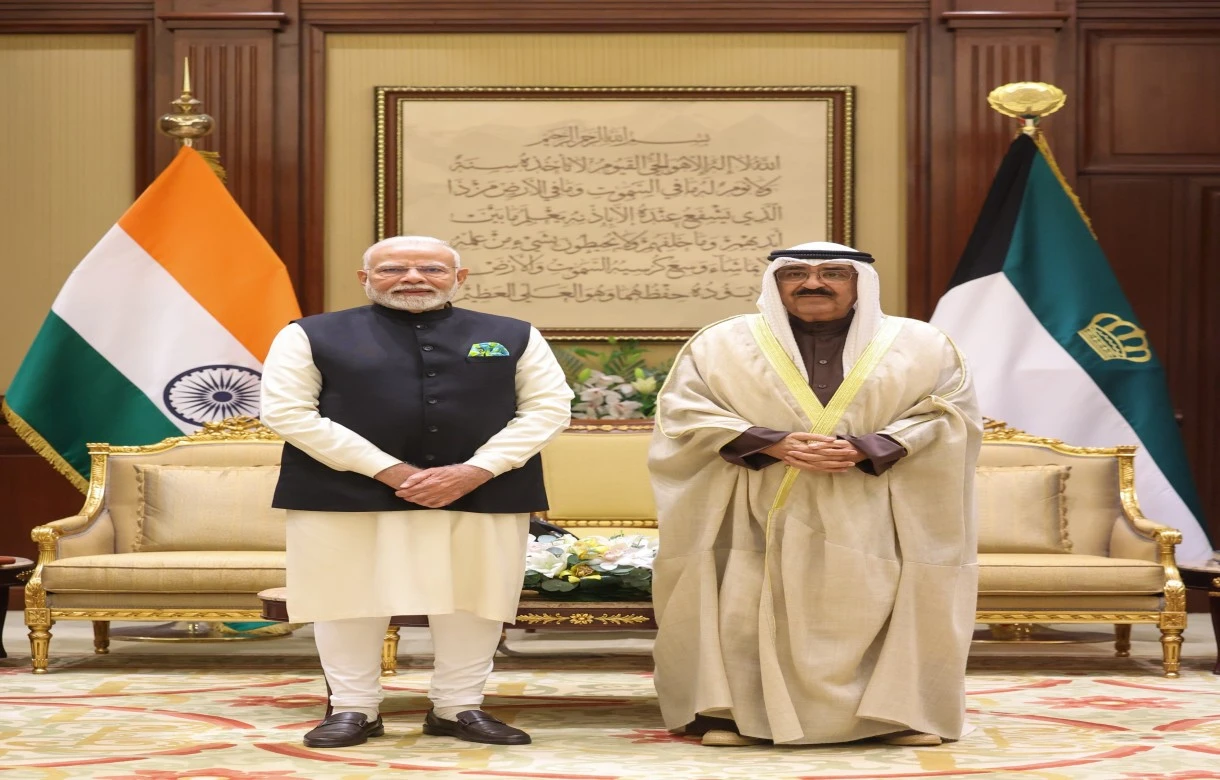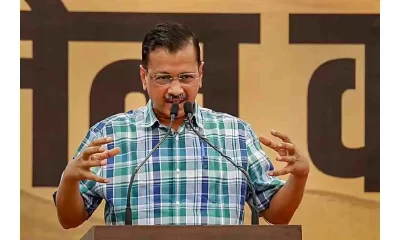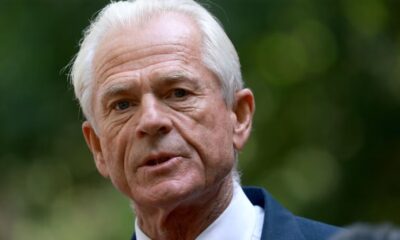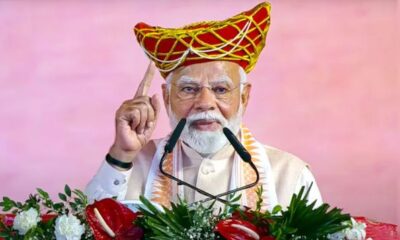Prime Minister Narendra Modi on Sunday engaged in extensive discussions with Kuwaiti Emir Sheikh Meshal Al-Ahmad Al-Jaber Al-Sabah, aiming to revitalize India-Kuwait relations, particularly in the fields of trade, investment, and energy.
PM Modi’s visit to Kuwait marks a significant occasion as it is the first by an Indian prime minister in 43 years, having arrived for a two-day trip on Saturday. Additionally, he is scheduled to meet Crown Prince Sheikh Sabah Al-Khalid Al-Sabah.
The discussions are expected to strengthen cooperation across various key sectors, including defence and trade, as indicated by officials prior to the meetings. During his stay, PM Modi addressed an event for the Indian community and visited a local labour camp, acknowledging the significance of the Indian diaspora, which constitutes the largest expatriate group in Kuwait.
Kuwait stands as one of India’s principal trading partners, with bilateral trade reaching an impressive $10.47 billion in the fiscal year 2023-24. Upon his arrival, Prime Minister Modi received a ceremonial welcome and guard of honour at the Bayan Palace, as noted by Ministry of External Affairs Spokesperson Randhir Jaiswal on social media.
This trip to Kuwait, at the invitation of Emir Sheikh Meshal Al-Ahmad Al-Jaber Al-Sabah, marks the first time in 43 years that an Indian Prime Minister has visited this Gulf nation.
“It takes just four hours to fly from India to Kuwait, but it has taken four decades for an Indian Prime Minister to come here,” PM Modi remarked during his address to the Indian community.
Welcoming attendees ahead of a series of upcoming festivals, he noted, “You have all gathered here from various parts of India, and it truly feels like a mini India has come together.”
He praised the contributions of the Indian community, saying, “Every year, hundreds of Indians arrive in Kuwait; you have added an Indian essence to Kuwaiti society, filling its canvas with the colors of Indian skills, complemented by our rich traditions, technology, and talent.” He reiterated India’s readiness to support the development of ‘New Kuwait’ with its skilled workforce and advanced technology.
During an interview, PM Modi expressed India’s commitment to assisting in the restoration of peace in Gaza and Ukraine, emphasizing that solutions must be reached through dialogue rather than conflict.
He highlighted the necessity for sincere and constructive engagement among stakeholders to bridge differences and achieve negotiated resolutions. He also reaffirmed India’s backing for a two-state solution to create a sovereign and independent Palestine with recognized borders.
Modi emphasized the profound and historic ties between India and Kuwait, noting that the two countries are on the cusp of transforming their traditional buyer-seller relationship into a strategic partnership by exploring new opportunities throughout the oil and gas value chain. As Kuwait serves as India’s sixth-largest crude supplier and fourth-largest LPG supplier, he mentioned, “The potential for further collaboration is vast, especially as India becomes the third-largest global consumer of energy, oil, and LPG.” He highlighted that Kuwait holds about 6.5% of global oil reserves.
He identified the petrochemical sector as another area ripe for collaboration, projecting that India’s rapidly expanding petrochemical industry will reach $300 billion by 2025. Modi remarked that the energy partnership is not just a cornerstone of economic relations but also a catalyst for diversified and sustainable growth, paving the way for mutual prosperity.























